CDC panel recommends Pfizer, Moderna COVID shots over J&J’s

Most Americans should be given the Pfizer or Moderna vaccines instead of the Johnson & Johnson shot that can cause rare but serious blood clots, U.S. health advisers recommended Thursday. The strange clotting problem has caused nine confirmed deaths after J&J vaccinations — while the Pfizer and Moderna vaccines don’t come with that risk and also appear more effective, advisers to the Centers for Disease Control and Prevention said. It’s an unusual move, and the CDC’s director, Dr. Rochelle Walensky, must decide whether to accept the panel’s advice. Until now, the U.S. has treated all three COVID-19 vaccines available to Americans as an equal choice since large studies found they all offered strong protection and early supplies were limited. J&J’s vaccine initially was welcomed as a single-dose option that could be especially important for hard-to-reach groups like homeless people who might not get the needed second dose of the Pfizer or Moderna options. But the CDC’s advisers said Thursday that it was time to recognize a lot has changed since vaccines began rolling out a year ago. More than 200 million Americans are considered fully vaccinated, including about 16 million who got the J&J shot. New data from unprecedented safety tracking of all those vaccinations persuaded the panel that while the blood clots linked to J&J’s vaccine remain very rare, they’re still occurring and not just in younger women as originally thought. In a unanimous vote, the advisers decided the safer Pfizer and Moderna vaccines are preferred. But they said the shot made by J&J’s Janssen division still should be available if someone really wants it — or has a severe allergy to the other options. “I would not recommend the Janssen vaccine to my family members,” but some patients may — and should be able to — choose that shot, said CDC adviser Dr. Beth Bell of the University of Washington. The clotting problems first came up last spring, with the J&J shot in the U.S. and with a similar vaccine made by AstraZeneca that is used in other countries. Eventually, U.S. regulators decided the benefits of J&J’s one-and-done vaccine outweighed what was considered a very rare risk — as long as recipients were warned. European regulators likewise continued to recommend AstraZeneca’s two-dose vaccine although, because early reports were mostly in younger women, some countries issued age restrictions. COVID-19 causes deadly blood clots, too. But the vaccine-linked kind is different, believed to form because of a rogue immune reaction to the J&J and AstraZeneca vaccines because of how they’re made. It forms in unusual places, such as veins that drain blood from the brain, and in patients who also develop abnormally low levels of the platelets that form clots. Symptoms of the unusual clots, dubbed “thrombosis with thrombocytopenia syndrome,” include severe headaches a week or two after the J&J vaccination — not right away — as well as abdominal pain and nausea. While it’s still very rare, the Food and Drug Administration told health care providers this week that more cases have occurred after J&J vaccinations since the spring. They occur most in women ages 30 to 49 — about once for every 100,000 doses administered, the FDA said. Overall, the government has confirmed 54 clot cases— 37 in women and 17 in men, and nine deaths that included two men, the CDC’s Dr. Isaac See said Thursday. He said two additional deaths are suspected. The CDC decides how vaccines should be used in the U.S., and its advisers called the continuing deaths troubling. In comparing the pros and cons of all the vaccines, the panelists agreed that side effects from the Pfizer and Moderna vaccines weren’t as serious — and that supplies now are plentiful. Nor is J&J still considered a one-and-done vaccine, several advisers noted. The single-dose option didn’t prove quite as protective as two doses of the Pfizer and Moderna vaccines. Plus, with extra-contagious virus mutants now spreading, booster doses now are recommended. Several countries, including Canada, already have policies that give preference to the Pfizer and Moderna vaccines. But J&J told the committee its vaccine still offers strong protection and is a critical option, especially in parts of the world without plentiful vaccine supplies or for people who don’t want a two-dose shot. While blood clots are rare, “unfortunately cases of COVID-19 are not,” J&J’s Dr. Penny Heaton said. The U.S. is fortunate in its vaccine availability, and Thursday’s action shouldn’t discourage use of J&J’s vaccine in places around the world where it’s needed, said CDC adviser Dr. Matthew Daley of Kaiser Permanente Colorado. The FDA also warned this week that another dose of the J&J vaccine shouldn’t be given to anyone who developed a clot following either a J&J or AstraZeneca shot. The committee also heard some of the first data on reported side effects of Pfizer vaccinations in younger children. Early last month, the CDC recommended a two-dose series for that age group, and more than 7 million doses have been given so far. But few problems have been reported. Of the 80 reported cases of serious side effects, about 10 involved a form of inflammation that has been seen in male teens and young adults. Republished with the permission of the Associated Press.
Next on FDA’s agenda: Booster shots of Moderna, J&J vaccines
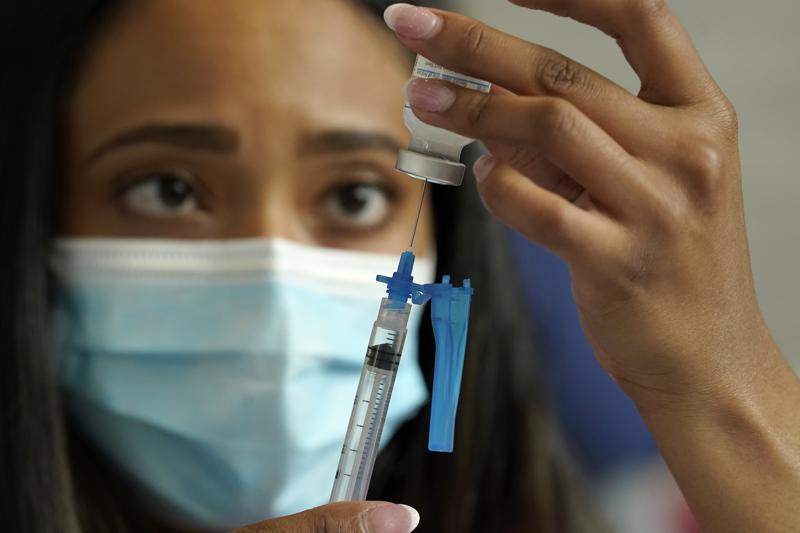
With many Americans who got Pfizer vaccinations already rolling up their sleeves for a booster shot, millions of others who received the Moderna or Johnson & Johnson vaccine wait anxiously to learn when it’s their turn. Federal regulators began tackling that question this week. On Thursday and Friday, the Food and Drug Administration convenes its independent advisers for the first stage in the process of deciding whether extra doses of the two vaccines should be dispensed and, if so, who should get them and when. The final go-ahead is not expected for at least another week. After the FDA advisers give their recommendation, the agency itself will make a decision on whether to authorize boosters. Then next week, a panel convened by the Centers for Disease Control and Prevention will offer more specifics on who should get them. Its decision is subject to approval by the CDC director. The process is meant to bolster public confidence in the vaccines. But it has already led to conflicts among experts and agencies — and documents the FDA released Tuesday suggest this week’s decisions will be equally difficult. In one earlier vaccine dispute, the CDC’s advisory panel last month backed Pfizer boosters at the six-month point for older Americans, nursing home residents, and people with underlying health problems. But CDC Director Dr. Rochelle Walensky overruled her advisers and decided boosters should also be offered to those with high-risk jobs such as teachers and health care workers, adding tens of millions more Americans to the list. Some health experts fear the back-and-forth deliberations are muddling the public effort to persuade the unvaccinated to get their first shots. They worry that the talk of boosters will lead people to wrongly doubt the effectiveness of the vaccines in the first place. When the FDA’s panel meets to review the Moderna and J&J vaccines, experts will discuss whether a third Moderna shot should contain just half the original dose and what’s the best timing for a second shot of the single-dose J&J vaccine. The panel will also look into the safety and effectiveness of mixing and matching different brands of vaccine, something regulators have not endorsed so far. An estimated 103 million Americans are fully vaccinated with Pfizer’s formula, 69 million with Moderna’s, and 15 million with J&J’s, according to the CDC. Regulators took up the question of Pfizer boosters first because the company submitted its data ahead of the other vaccine makers. Tim Anderson, a U.S. history teacher at a high school outside Louisville, Kentucky, already had his two Moderna shots months before he came down with COVID-19 in August. While his symptoms hit him “like a sledgehammer,” he is convinced that the inoculation saved him and his girlfriend from the more severe effects of the disease. The two are now awaiting clearance of a Moderna booster shot. “Until we can build up enough immunity within our own self and, you know, as a group of humans, I’m willing to do what I need to do,” Anderson, 58, said. The FDA meetings come as U.S. vaccinations have climbed back above 1 million per day on average, an increase of more than 50% over the past two weeks. The rise has been driven mainly by Pfizer boosters and employer vaccine mandates. While the FDA and CDC so far have endorsed Pfizer boosters for specific groups only, Biden administration officials, including Dr. Anthony Fauci, have suggested that extra shots will eventually be recommended for most Americans. In a new review of Moderna’s data, the FDA did not indicate Tuesday if it was leaning toward clearing the company’s booster. It said vaccines used in the U.S. still provide protection, and it raised questions about some of Moderna’s data. The two initial Moderna shots contain 100 micrograms of vaccine each. But the drugmaker says 50 micrograms ought to be enough for a booster for healthy people. A company study of 344 people gave them a 50-microgram shot six months after their second dose, and levels of virus-fighting antibodies jumped. Moderna said the booster even triggered a 42-fold rise in antibodies able to target the extra-contagious delta variant. Side effects were similar to the fevers and aches that Moderna recipients commonly experience after their second regular shot, the company said. As for people who got the J&J vaccine, the company submitted data to the FDA for different options: a booster shot at two months or at six months. The company said in its FDA submission that a six-month booster is recommended but that a second dose could be given at two months in some situations. J&J released data in September showing that a booster given at two months provided 94% protection against moderate-to-severe COVID-19 infection. The company has not disclosed patient data on a six-month booster, but early measures of virus-fighting antibodies suggest it provides even higher protection. Even without a booster, J&J says, its vaccine remains about 80% effective at preventing COVID-19 hospitalizations in the U.S. Scientists emphasize that all three vaccines used in the U.S. still offer strong protection against severe disease and death from COVID-19. The issue is how quickly and how much protection against milder infection may wane. In one recent study, researchers compared about 14,000 people who had gotten their first Moderna dose a year ago with 11,000 vaccinated eight months ago. As the delta variant surged in July and August, the more recently vaccinated group had a 36% lower rate of “breakthrough” infections compared with those vaccinated longer ago. Republished with the permission of the Associated Press.
U.S. unveils guidance for federal vaccine mandate, exemptions
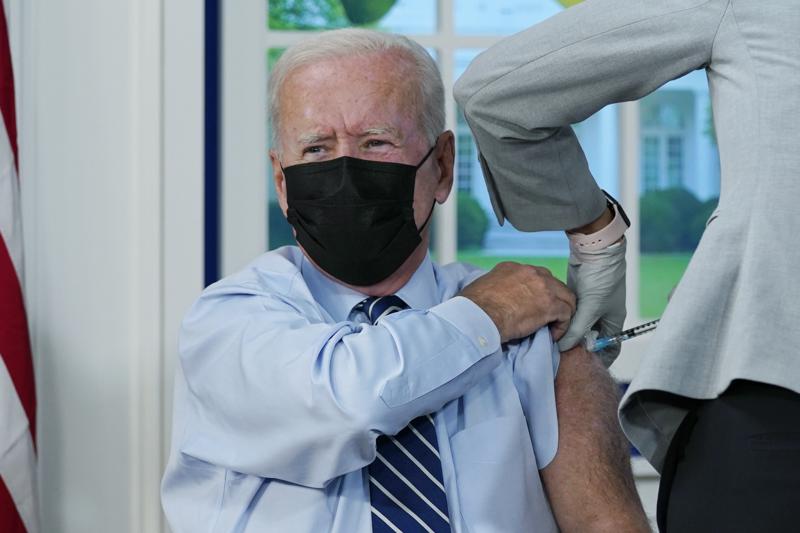
With just weeks remaining before federal workers must be vaccinated against COVID-19, the federal government on Monday outlined procedures for employees to request medical or religious exemptions from President Joe Biden’s mandate. The Office of Management and Budget released the new guidance Monday afternoon ahead of the Nov. 22 deadline for workers to be fully vaccinated, outlining specific medical conditions that would warrant an exemption. Under the guidelines, agencies are to direct workers to get their first shot within two weeks of an exemption request being denied or the resolution of a medical condition. They also make clear that federal agencies may deny medical or religious exemptions if they determine that no other safety protocol is adequate. The Biden administration is drawing on Centers for Disease Control and Prevention guidance to determine approved medical exemptions, including a history of allergic reaction to the vaccines. Other conditions, including being treated with monoclonal antibodies or having a history of multisystem inflammatory syndrome, warrant a 90-day delay in vaccination, in accordance with CDC advice. While the CDC recommends that women who are pregnant or are planning to become pregnant get vaccinated against COVID-19, the federal government will consider requests to delay vaccination while pregnant depending on the worker’s particular medical circumstances. Senior administration officials provided The Associated Press with a preview of the new guidance Monday before OMB posted it. Federal workers seeking exemptions will engage in what officials called an “interactive process” with their agencies, which will include being asked to provide documentation to support the exemption and potential accommodations. If an exemption request is rejected, workers will have two weeks to get a first shot or be subject to disciplinary proceedings in accordance with Biden’s order. Unvaccinated workers are required to wear masks and maintain social distancing and will have their ability to travel for work curtailed. New testing guidance for those who are granted exemptions is expected to be unveiled in the coming weeks. In some cases, agencies may deny even legitimate exemption requests if they determine “that no safety protocol other than vaccination is adequate” given the nature of the employee’s job. Under CDC guidelines, people are only considered fully vaccinated two weeks after their second dose of two-shot mRNA vaccines from Pfizer and Moderna or the one-dose Johnson & Johnson shot — meaning most federal workers have until Nov. 8, at the latest, to roll up their sleeves to comply with Biden’s order. According to the new federal guidance, neither past COVID-19 infection nor an antibody test can be substituted for vaccination. Meanwhile, private companies with more than 100 employees will be subject to a forthcoming rule from the Occupational Safety and Health Administration requiring all employees to be vaccinated or get tested weekly. Biden announced the regulation weeks ago, but the agency is still drafting the particulars. Republished with the permission of the Associated Press.
Kay Ivey announces vaccine eligibility expanded to individuals ages 12 and older, effective immediately
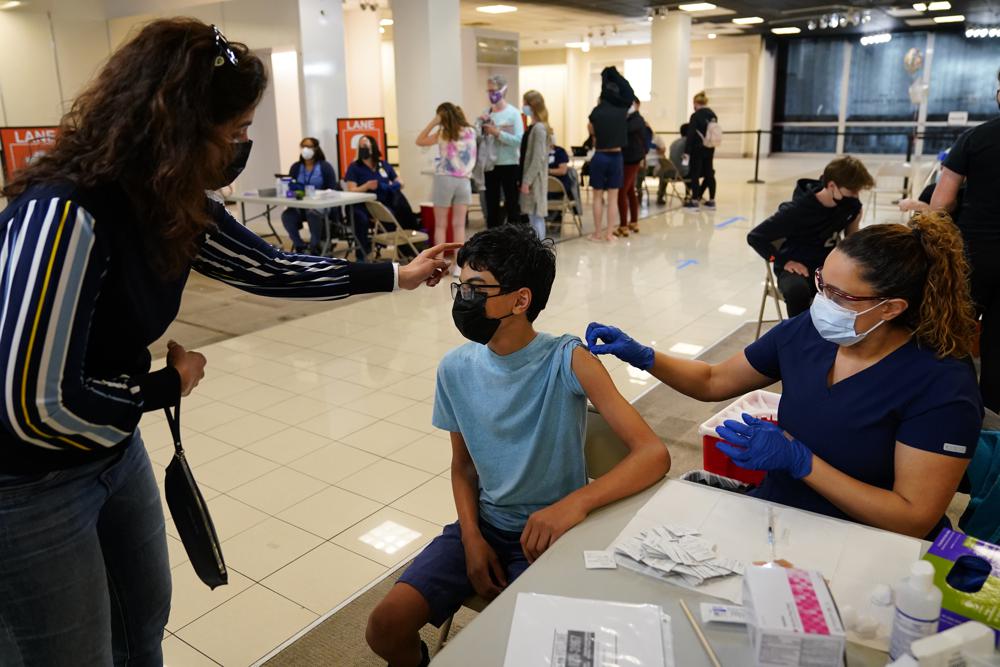
On Thursday, Governor Kay Ivey announced Alabama is expanding COVID-19 vaccination eligibility to include individuals age 12 and older, effective immediately. The U.S. Food and Drug Administration (FDA) authorized the Pfizer-BioNTech COVID-19 vaccine for emergency use in adolescents on Monday. The Center for Disease Control Director Rochelle Walensky stated, “The CDC now recommends the vaccine be used among this population, and providers may begin vaccinating them right away.” Ivey commented, “This is great and welcome news that the Pfizer-BioNTech vaccine will now be available for Alabamians 12 and up, offering another option for families in our state as we get back into full gear. We have seen good success so far with these safe and effective vaccines, and I encourage parents and children to consult with your pediatrician if you have any questions. The vaccine is our ticket back to normal, and I continue to feel optimistic and hopeful in the positive direction we are moving in as a state.” The Pfizer vaccine is available to individuals age 12 and up. The Moderna and Johnson & Johnson vaccines are available to individuals 18 years of age and older. On Twitter, Ivey stated, “Alabama is expanding #COVID19 vaccination eligibility to include individuals age 12 & older, effective immediately. This is great news! Folks, the vaccine is our ticket back to normal.” Alabama is expanding #COVID19 vaccination eligibility to include individuals age 12 & older, effective immediately. This is great news! Folks, the vaccine is our ticket back to normal. #alpolitics @ALPublicHealth https://t.co/tJenuuoqGn — Governor Kay Ivey (@GovernorKayIvey) May 13, 2021 “We encourage the vaccination of adolescents ages 12 and older to get the protection offered by the Pfizer COVID-19 vaccine,” State Health Officer Dr. Scott Harris stated. “This vaccine will be available at private providers and other sites which have Pfizer COVID-19 vaccine available.” As of May 12, 2,722,909 doses of COVID-19 vaccines have been administered.
Kay Ivey encourages mask wearing after mandate expires April 9
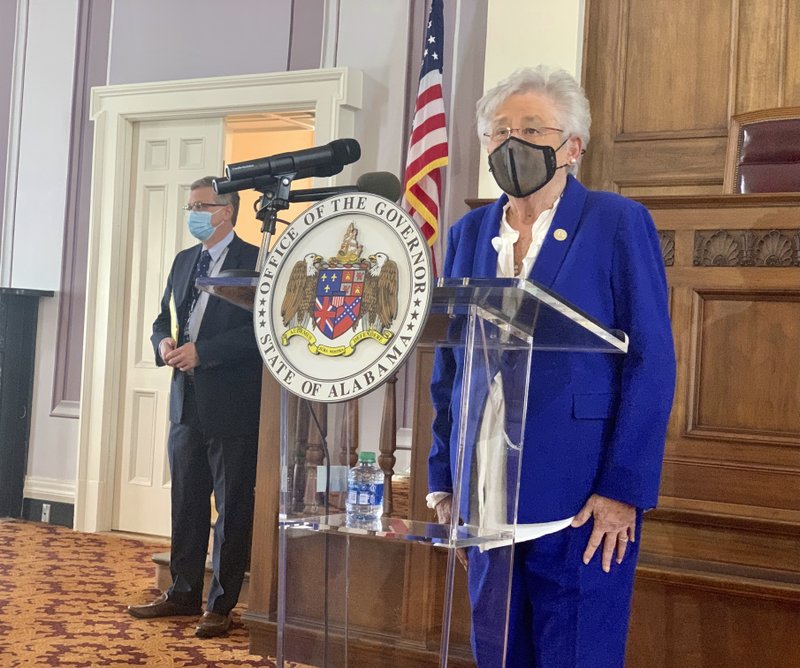
Alabama Gov. Kay Ivey this week urged people to wear masks in public after the statewide mask mandate expires next month. Ivey has been adamant that she will not extend the mask mandate past April 9. On Monday, her office released designs for signs for businesses to use to request patrons to wear masks. The designs range from “Mask Preferred” to “Mask Required For Service.” “After April 9, masks will no longer be a mandate, but they remain one of the most successful tools we have to keep folks safe from COVID-19,” Ivey said in a statement. “Masks are soon to be a memory but until then, let’s wear them out.” Alabama this week expanded eligibility for COVID-19 vaccinations. The expansion, which started Monday, will add more than 2 million people to the groups who can get a COVID-19 vaccination in Alabama, roughly doubling the number of people now eligible. The new eligible groups include more frontline workers; people 55 and older; those with intellectual and developmental disabilities; and residents age 16 to 64 with certain high-risk medical conditions. The qualifying medical conditions include cancer, chronic kidney disease, diabetes, smoking, obesity, sickle cell disease, and heart conditions. State Health Officer Dr. Scott Harris on Friday said most adults will now be eligible for shots and urged people to be patient as they seek vaccination appointments. “Probably between half and two-thirds of all the adults in the state are going to be covered,” Harris said. “So that will be a significant increase in demand.” The Alabama National Guard on Tuesday began a series of COVID-19 vaccine clinics around the state as health officials try to bring the shots to rural areas that may have fewer providers. The Alabama National Guard is providing first-dose COVID-19 vaccination clinics in 24 counties for the next three weeks. There will be a round of second-dose clinics April 13-30. Ivey activated guard units to set up the mobile sites to bring COVID-19 vaccinations to underserved and rural communities. A list of vaccinations clinics can be found at the Alabama Department of Public Health website. The vaccine will be administered at the clinics located in: Barbour, Bullock, Butler, Choctaw, Clarke, Coffee, Conecuh, Covington, Crenshaw, Dale, Dallas, Greene, Hale, Henry, Lowndes, Macon, Marengo, Monroe, Perry, Pike, Russell, Sumter, Washington, and Wilcox counties. There continues to be positive signs in the state. The number of COVID-19 patients in Alabama hospitals has dipped to below 400. It had been as high as 3,000 at the start of the year. Republished with the permission of the Associated Press.
Alabama to expand COVID-19 vaccine eligibility on March 22
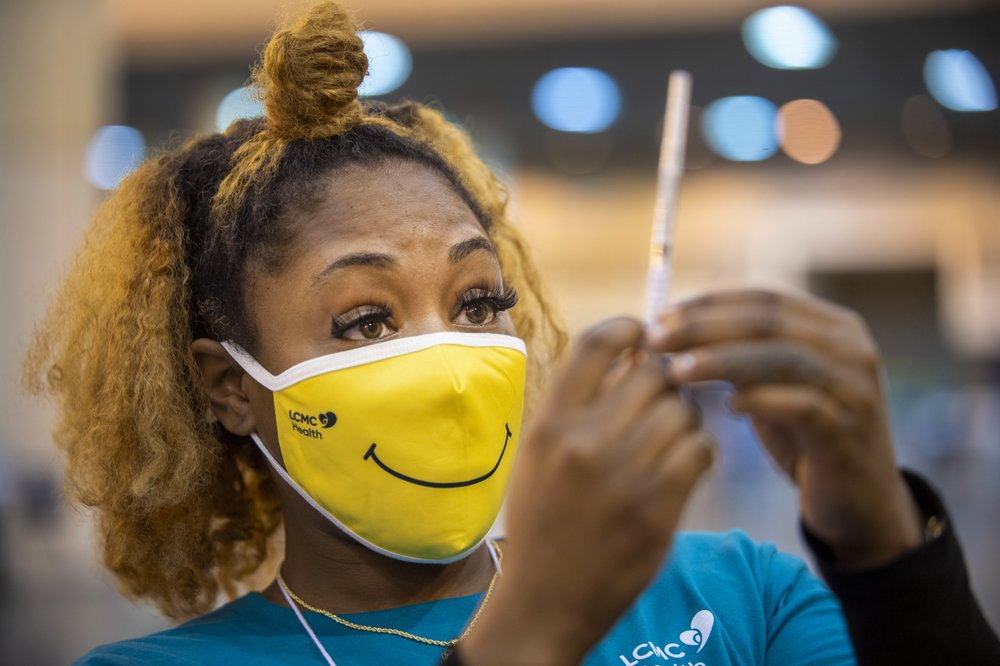
Alabama is expanding eligibility later this month for COVID-19 vaccinations to more frontline workers, residents with certain chronic health conditions, and people 55 and older, state officials announced Friday. “We have been concerned that many people at high risk and others engaged in close-contact work have not been eligible to receive the vaccine yet, but with the additional vaccine supply we are better able to meet the needs of Alabama residents,” Gov. Kay Ivey said in a statement. The expansion, starting March 22, will add over 2 million people to the groups who can receive a COVID-19 vaccination in Alabama, roughly doubling the number of people now eligible. The dramatic increase comes at a time when demand continues to exceed supply and will increase the competition to find shots. State Health Officer Scott Harris said Alabama expanded eligibility because of the expectations of the public — particularly as they see people in other states getting shots — and health officials’ expectations that the supply will jump over the coming weeks. “I would just encourage people to please remember to be patient. They have been patient for so long and we are really very very close to having enough vaccine to go around. I think in a month, probably six weeks at least, there is going to be more than an adequate supply of vaccine,” Harris told reporters Friday. The new eligible groups include more frontline workers; people 55 and older; those with intellectual and developmental disabilities; and residents age 16 to 64 with certain high-risk medical conditions. The qualifying medical conditions include cancer, chronic kidney disease, diabetes, smoking, obesity, sickle cell disease and heart conditions. More workers will also be eligible for the shots, including restaurant staff, transportation workers, construction workers, bank tellers, legal professionals and members of the news media. Alabama currently ranks near the bottom for the percentage of the population that has been vaccinated, according to numbers from the Centers for Disease Control and Prevention. About 16.1% of the state’s 4.9 million people have received at least one vaccination dose. Harris said the department conducted surveys to try to gauge vaccine hesitancy and found up to 30% of adults are reluctant to take the vaccine. Some of those are “people who simply just need better information. We need to find away to educate them,” Harris said. He said others are people who have “other ideas about vaccinations in general or even about the coronavirus event in general.” Since the pandemic began, more than 500,000 Alabamians have tested positive for COVID-19. Ivey has directed flags to be placed at half-staff on Saturday to honor and remember the more than 10,000 Alabamians who lost their lives to the COVID-19 pandemic, her office announced. The announcement of the expanded eligibility comes a year after the first COVID-19 case was identified in the state. Harris noted the remarkable work that went onto developing the vaccines. “The vaccine response to COVID-19 is really going to be like landing on the moon was for some of us of a certain age,” Harris said. Republished with the permission of the Associated Press.
States easing virus restrictions despite experts’ warnings
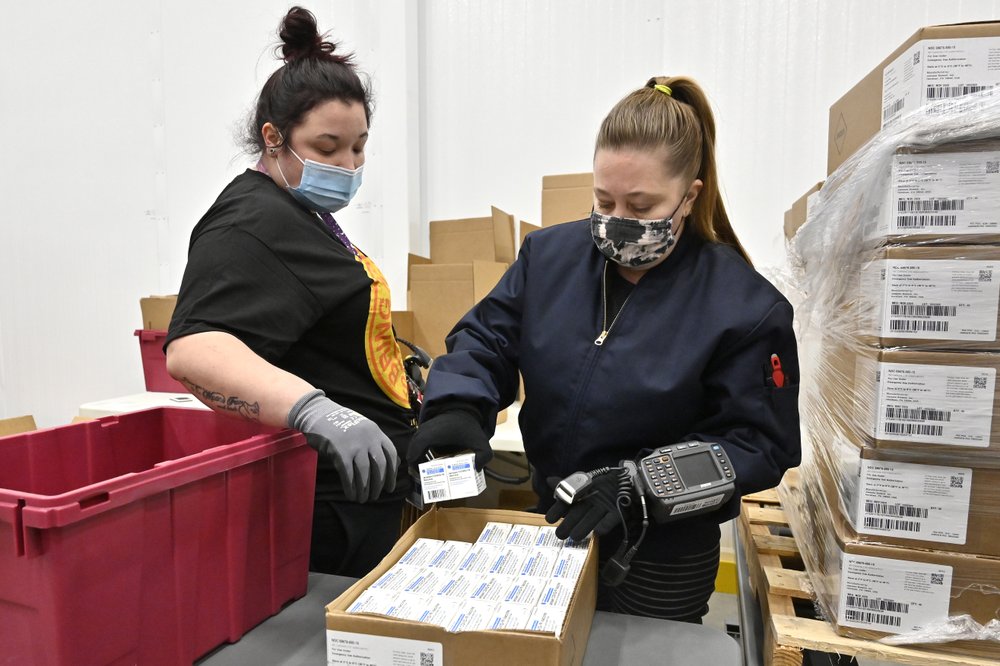
With the U.S. vaccination drive picking up speed and a third formula on the way, states eager to reopen for business are easing coronavirus restrictions despite warnings from health experts that the outbreak is far from over and that moving too quickly could prolong the misery. Massachusetts on Monday made it much easier to grab dinner and a show. In Missouri, where individual communities get to make the rules, the two biggest metropolitan areas — St. Louis and Kansas City — are relaxing some measures. Iowa’s governor recently lifted mask requirements and limits on the number of people allowed in bars and restaurants, while the town of Lawrence, home to the University of Kansas, now lets establishments stay open until midnight. Mike Lee, who owns Trezo Mare Restaurant & Lounge in Kansas City, said he hopes increased vaccine access, combined with warmer weather, will improve business. “I think that people are excited to put this past them and be able to start to get back to their ways of doing things,” Lee said. The push to reopen comes as COVID-19 vaccine shipments to the states are ramping up. Nearly 20% of the nation’s adults — or over 50 million people — have received at least one dose of vaccine, and 10% have been fully inoculated 2 1/2 months into the campaign to snuff out the virus, according to the Centers for Disease Control and Prevention. Johnson & Johnson shipped out nearly 4 million doses of its newly authorized, one-shot COVID-19 vaccine Sunday night to be delivered to states for use starting on Tuesday. The company will deliver about 16 million more doses by the end of March and a total of 100 million by the end of June. That adds to the supply being distributed by Pfizer and Moderna and should help the nation amass enough doses by midsummer to vaccinate all adults. The White House is encouraging Americans to take the first dose available to them, regardless of manufacturer. In New York City, where limited indoor dining has resumed, officials said the J&J vaccine will help the city to inoculate millions more people by summer, including through door-to-door vaccinations of homebound senior citizens. But the efforts come with strong warnings from health officials against reopening too quickly, as worrisome coronavirus variants spread. On Monday, the head of the CDC, Dr. Rochelle Walensky, urgently warned state officials and ordinary Americans not to let down their guard, saying she is “really worried about reports that more states are rolling back the exact public health measures that we have recommended.” “I remain deeply concerned about a potential shift in the trajectory of the pandemic,” she said. “We stand to completely lose the hard-earned ground that we have gained.” Cases and hospitalizations have plunged since the end of January, and deaths have also dropped sharply, but they are still running at dangerously high levels and have even risen slightly over the past several days. “We cannot be resigned to 70,000 cases a day and 2,000 daily deaths,” Walensky said. Overall, the outbreak has killed more than a half-million Americans. The vaccine already is contributing to a decrease in severe cases and deaths among older people, and is “quickly becoming a bigger contributor” nationally, Justin Lessler, an expert in infectious diseases at Johns Hopkins University, said in an email. “I suspect we will see it overtake natural infection as the biggest driver of immunity late spring earliest, more likely midsummer,” Lessler said. Dr. Amesh Adalja, an infectious disease specialist at Johns Hopkins University, said he believes states and cities have leeway to ease some restrictions because hospitals no longer are at capacity in most communities. But “I do think that masks are likely going to need to be kept in place for some time until we get more of our vulnerable populations vaccinated,” he said. “It is important for restaurants who are increasing their capacity to remember that we are still in a pandemic and to continue to follow some of those rules,” Adalja said. The Biden administration wants to see all three vaccines distributed evenly, while also acknowledging that the easy-to-handle J&J vaccine will be used in pop-up mobile sites and locations without freezer storage capacity. States are hoping that the surging vaccine supply will help tamp down new infections. In Massachusetts, Gov. Charlie Baker lifted restaurant capacity limits entirely. Theaters can open at 50% capacity, with a maximum of 500 people. And capacity limits across all businesses have been raised to 50%. Las Vegas on Monday became the latest of the nation’s largest school districts to return children to classrooms. Pre-K children to third graders will go back two days a week, with other grades to be phased in by early April. And in California, Gov. Gavin Newsom and legislative leaders reached an agreement aimed at getting most children back in classrooms by the end of March. Under the deal announced Monday, school districts could receive up to $6.6 billion if they reopen by March 31. The U.S. ranks fourth in the world, behind Israel, the United Arab Emirates, and Britain, in the number of doses administered relative to the population, according to data compiled by the University of Oxford. President Joe Biden fell well short of his goal of setting up 100 new federally operated mass-vaccination sites by the end of February, with just seven up and running. White House vaccination coordinator Jeff Zients also acknowledged that scheduling of vaccination appointments “remains too difficult in too many places.” But he said the White House is working with states to improve scheduling systems and is exploring federal support for call centers to make it easier for people to get appointments. Republished with the permission of the Associated Press.


